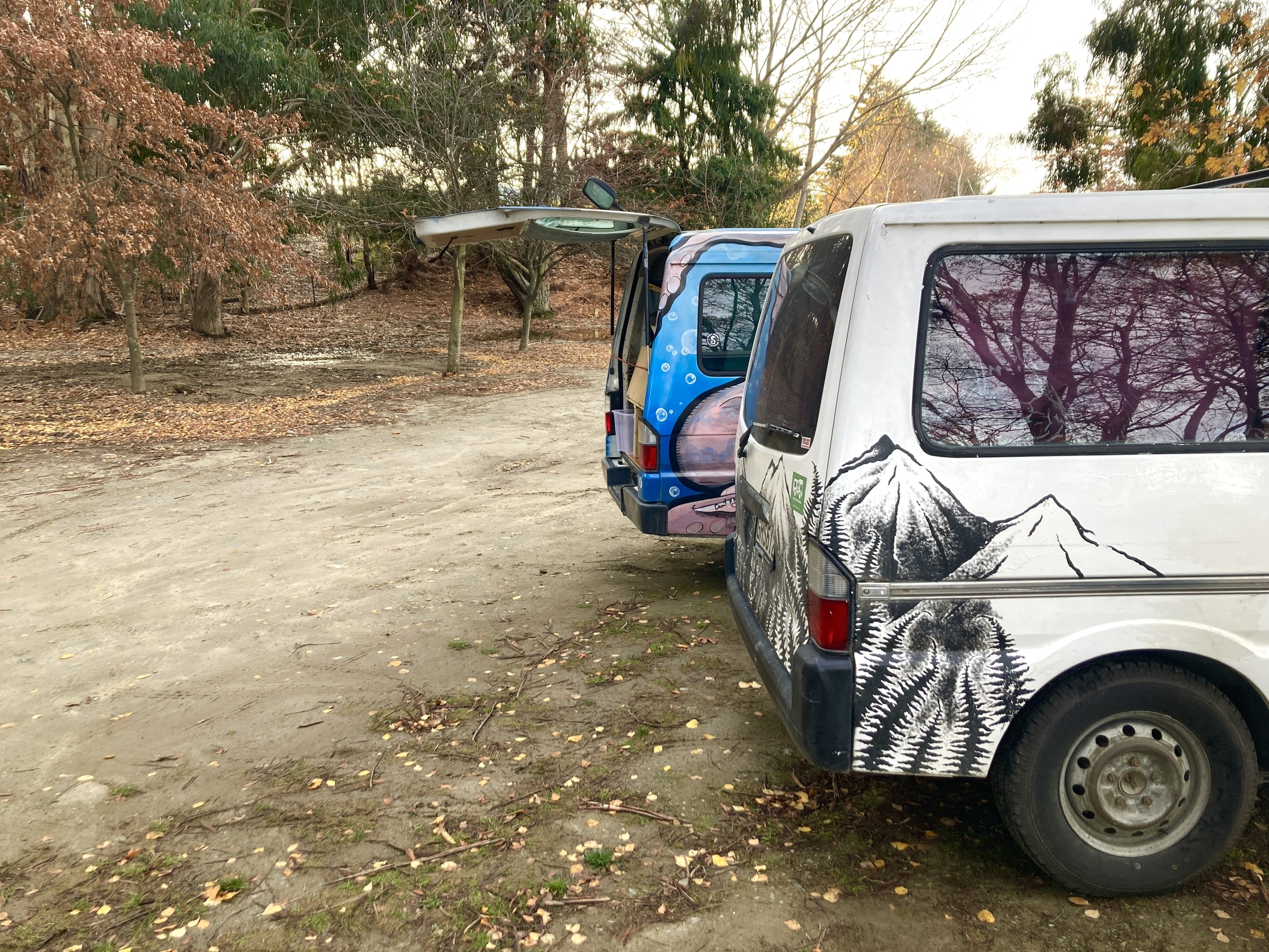Hot topics for candidates: Freedom camping
Sue Wards
06 September 2025, 6:00 PM
 Is the new draft bylaw too tough, or not tough enough?
Is the new draft bylaw too tough, or not tough enough?Freedom camping is the fourth hot topic facing the Upper Clutha which the Wānaka App has asked local body election candidates’ their views about.
Freedom camping has been a vexed issue across the district for almost a decade. Prior to the Covid-19 pandemic, residents of this district had had enough of large numbers of campers, some of whom were responsible for littering and toileting where they camped.
Queenstown Lakes District Council (QLDC) put a tougher bylaw in place in 2021, but had to stop enforcing it last year when the High Court revoked it after the NZ Motor Caravan Owners Association (NZMCA) challenged the bylaw’s legality.
QLDC has drafted a new bylaw and submitters spoke to their issues and concerns about it last week at a hearing.
The Wānaka App asked candidates for the Wānaka Ward of Queenstown Lakes District Council (QLDC) and the Wānaka Upper Clutha Community Board (WUCCB) if they were happy with the proposed draft bylaw.
Read more: Freedom camping bylaw - an ‘unwinnable compromise’
Community Board candidates respond
Simon Telfer: “It's too lenient. Visitors to our district should be expected to pay a nominal amount to stay in existing campgrounds and contribute to essential infrastructure. Most tourists do the right thing but it should not be made easier for others to compromise our environment through littering and errant toileting.”
John Wellington: “I am resigned rather than happy about the freedom camping bylaw, as it seeks to place some control around the issue while having both hands tied behind its back by central government’s 2011 Freedom Camping Act which severely limits what controls can be placed on freedom camping by council bylaws.
It does not allow amenity values and effects on neighbours to be an assessment factor in restricting freedom camping locations, which results in the Allenby Park location having to be considered. The bylaw is probably the best we can do without changes to the Freedom Camping Act.”
Linda Joll: “I have no issues with the draft freedom camping bylaw. However, it's the education of our tourists, with clear maps and information that could be improved, as the numbers are only going to increase in the future. Information needs to be environmentally/culturally led.”
Kathy Dedo: “The current draft bylaw is problematic. Many submitters during the recent consultation were unhappy with the specific residential locations (saying they don’t make sense) and with the rural road allowance (saying it’s too broad and unsafe) proposed for freedom camping.
There are some great suggestions from experienced locals who are also freedom campers in the submissions, providing examples from other NZ districts and in Europe that are more innovative than what is currently proposed. Designated, serviced, larger areas on the outskirts of the town centre (like the Red Bridge area) seem a sensible compromise solution, as does pursuing collaboration with NZMCA (whose sites are known for self-policing by members).”
Chris Hadfield and John Bache did not respond.
Council candidates respond
Lyal Cocks: “Considering we have more freedom campers in our district than anywhere else in New Zealand and the court ruling has constrained our ability to manage camping to the expectation of our communities, I was reasonably comfortable with the proposals. It will be interesting to see what changes are recommended by the panel based on what they heard from the public.”
Barry Bruce: “I am concerned the proposed freedom camping bylaw is potentially unworkable and a difficult to enforce means of responding to the freedom camping issue. While there may be some merit in establishing a bylaw, the large geographical area, multiple camp sites and possible confusing interpretations, makes upholding the bylaw challenging. Coupled with this is the large number of budget travellers who may not understand the rules and conditions.
Having a bylaw could be interpreted by some as an open door policy. The alternative is to manage freedom camping within the reserves act and parking regulations, a process that worked well without a bylaw.”
Cody Tucker: “There’s some work to be done around how the rules are shown (problems with translating the rural road component) and how to better manage effects of these new sites with better systems like registration and cameras for enforcement.”
Niki Gladding: “It’s important to note that council is significantly constrained by the Freedom Camping Act - which takes a permissive approach. I think the draft bylaw was a good draft for notification. It needed to have a sound basis, in the legal sense, or we would be setting ourselves up for another legal challenge down the track. It has that.
That said, I expect the panel will be recommending some changes to the draft - based on submissions that addressed the (limited) matters council is allowed to consider when restricting freedom camping. The fixed toilet requirement can’t come soon enough.”
Craig Gasson: “Tourism is so essential to the economy of the Upper Clutha. Tourism done well is not this bylaw. Flawed the first time around at great ratepayer expense. The cost of monitoring and enforcement alone asks the question: Where is the value?
The self containment regulation and sticker system is the main issue. Properly self contained vehicles are not. Albert Town campsite should be upgraded to facilitate ‘self contained’ travellers so they have a nicer experience and our environment is protected.”
Yeverley McCarthy: “The freedom camping bylaws have really only been formulated and it is my understanding that there will be enforcement across the area to ensure that they are adhered to. The growth of tourism and the proliferation of camper vans as a tourism mechanism is only going to continue. Education, and clear expectations to users is imperative.
The cost of enforcement is high and that has to be offset somehow; it appears in the formula that fines won’t cover it, so is it fair to burden ratepayers with that, personally I don’t think so. We need to analyse this regularly to see if the system is working and if not make the necessary adjustment.”
Quentin Smith and Thorsk Westphal did not respond, and Nicola King could not respond due to illness.
PHOTO: Wānaka App





